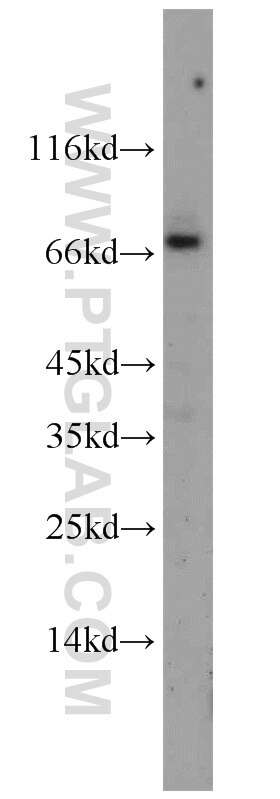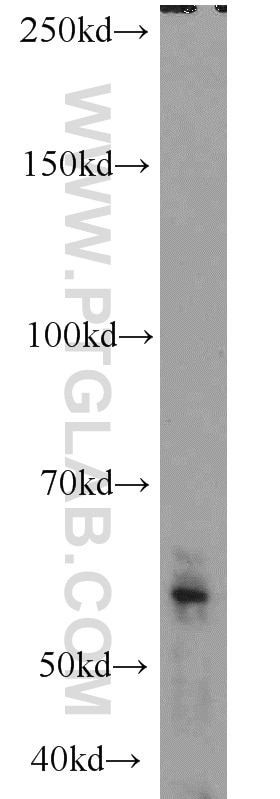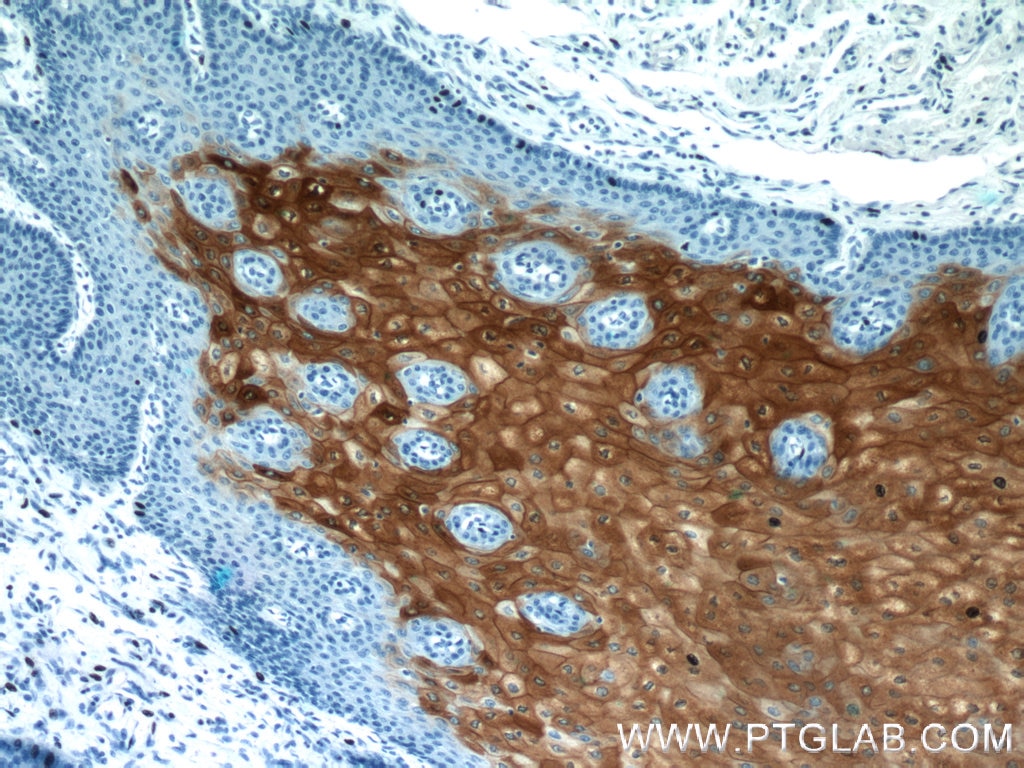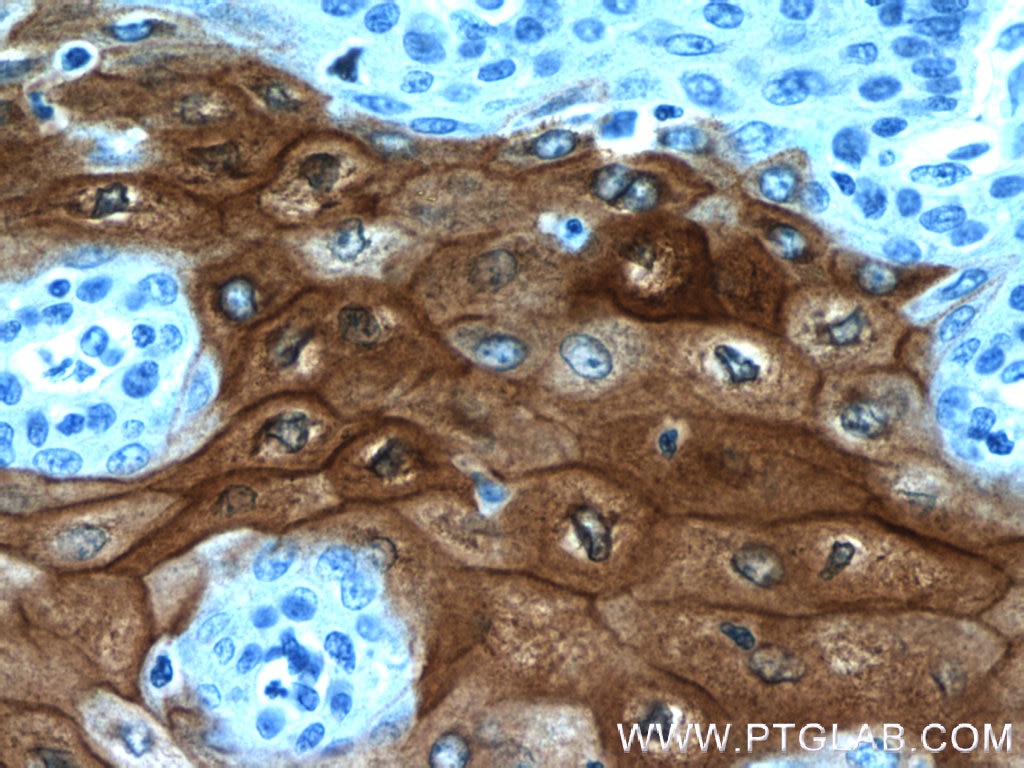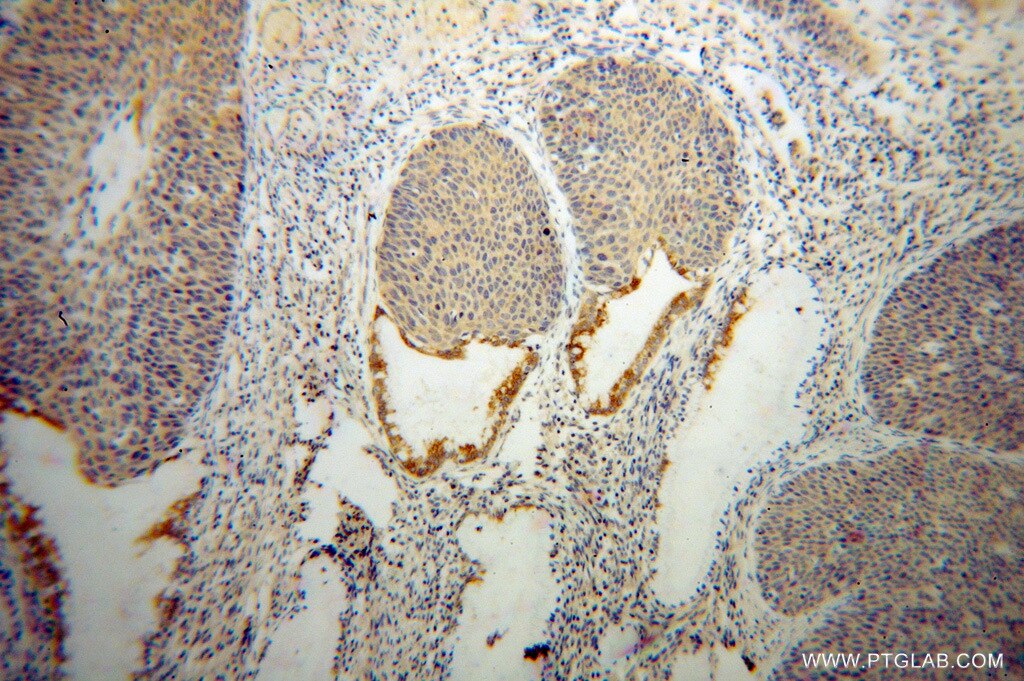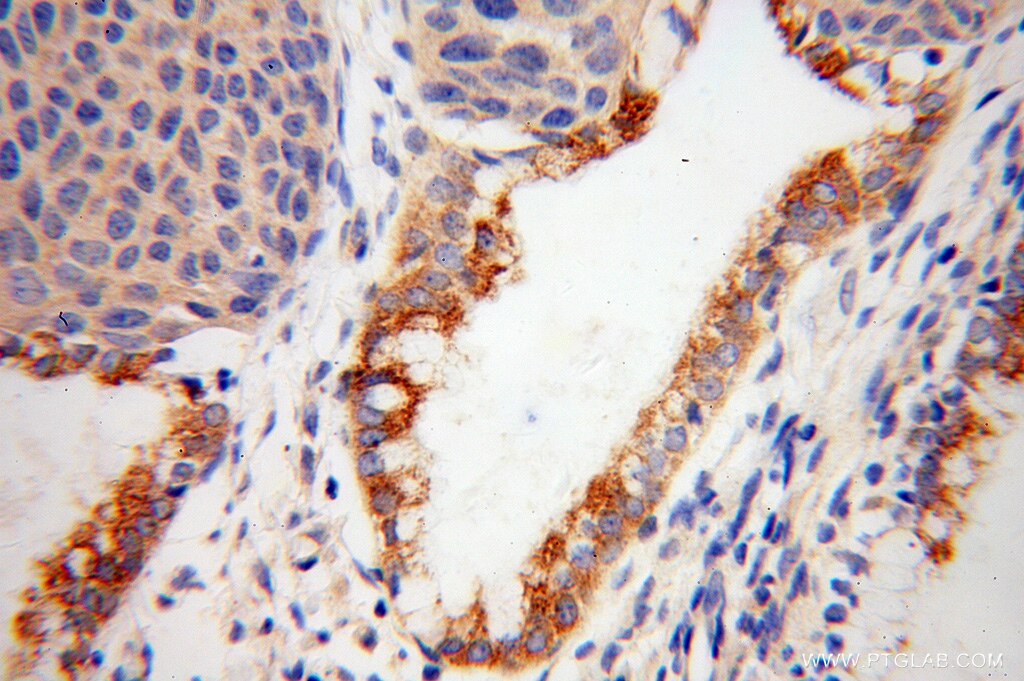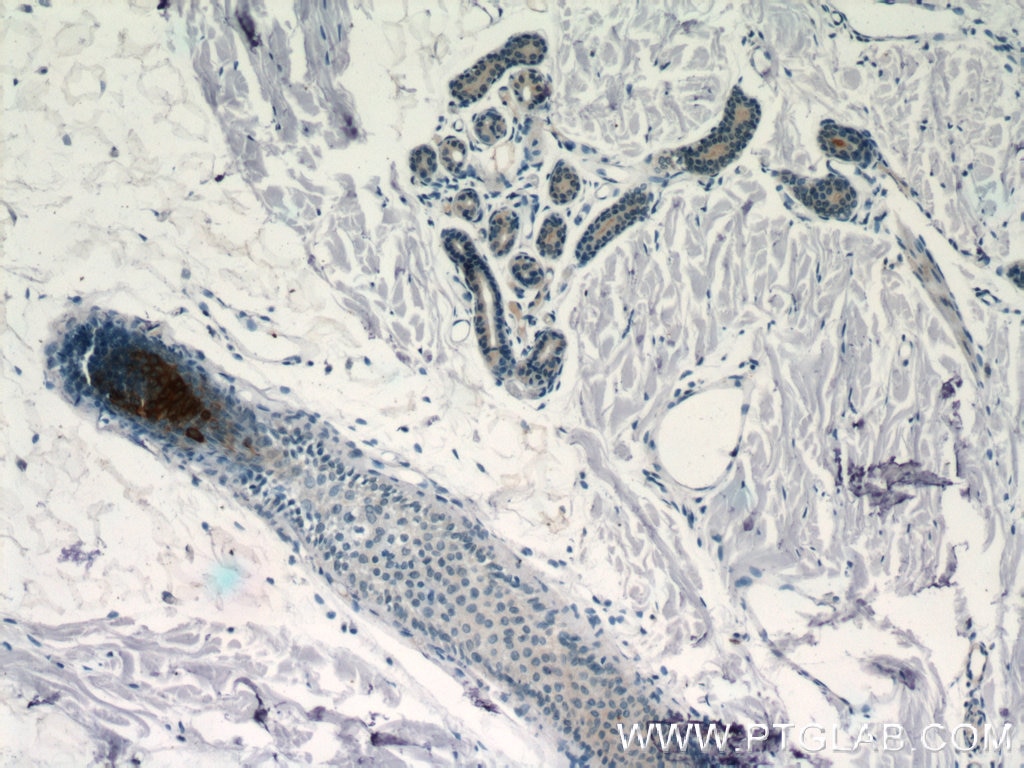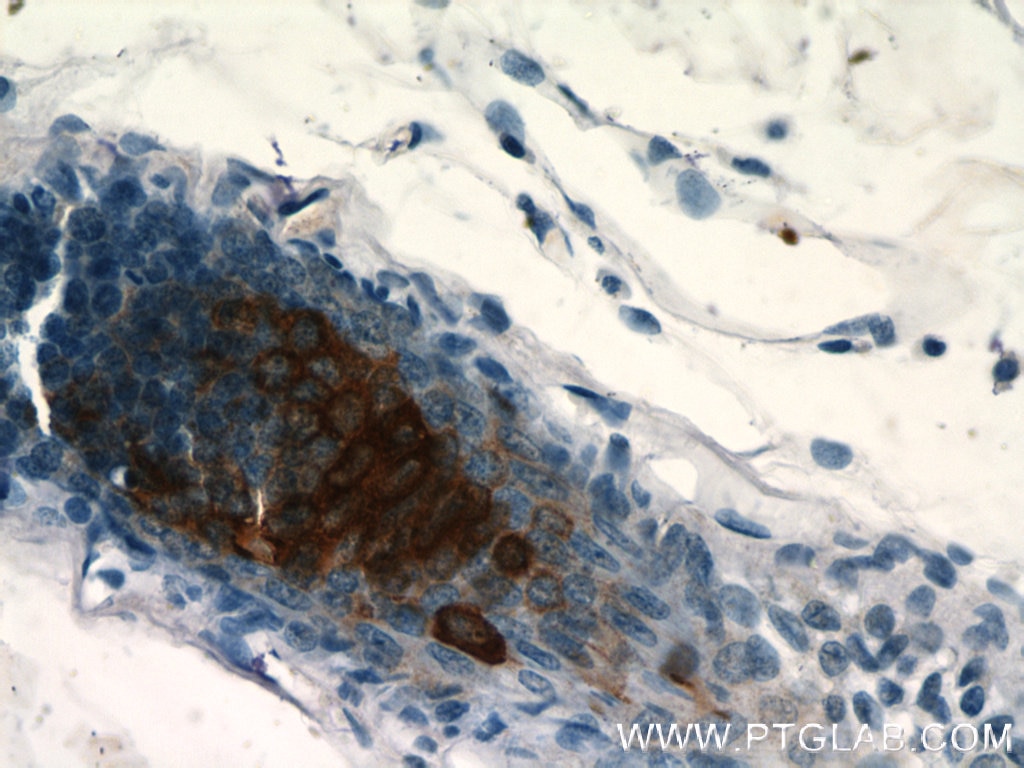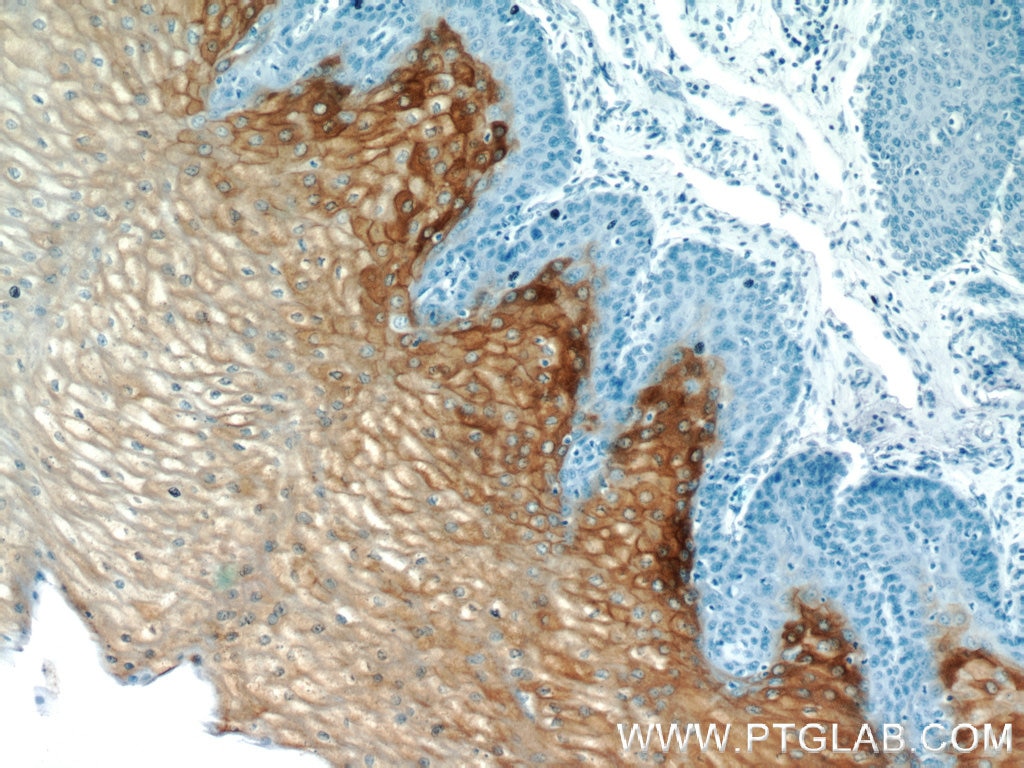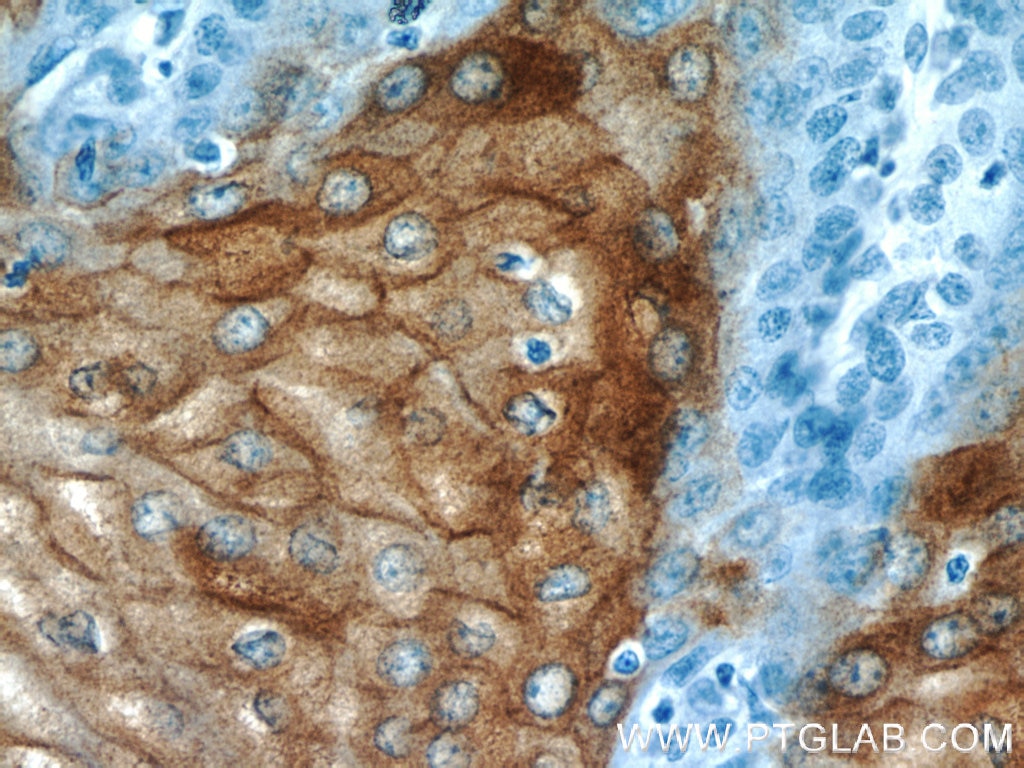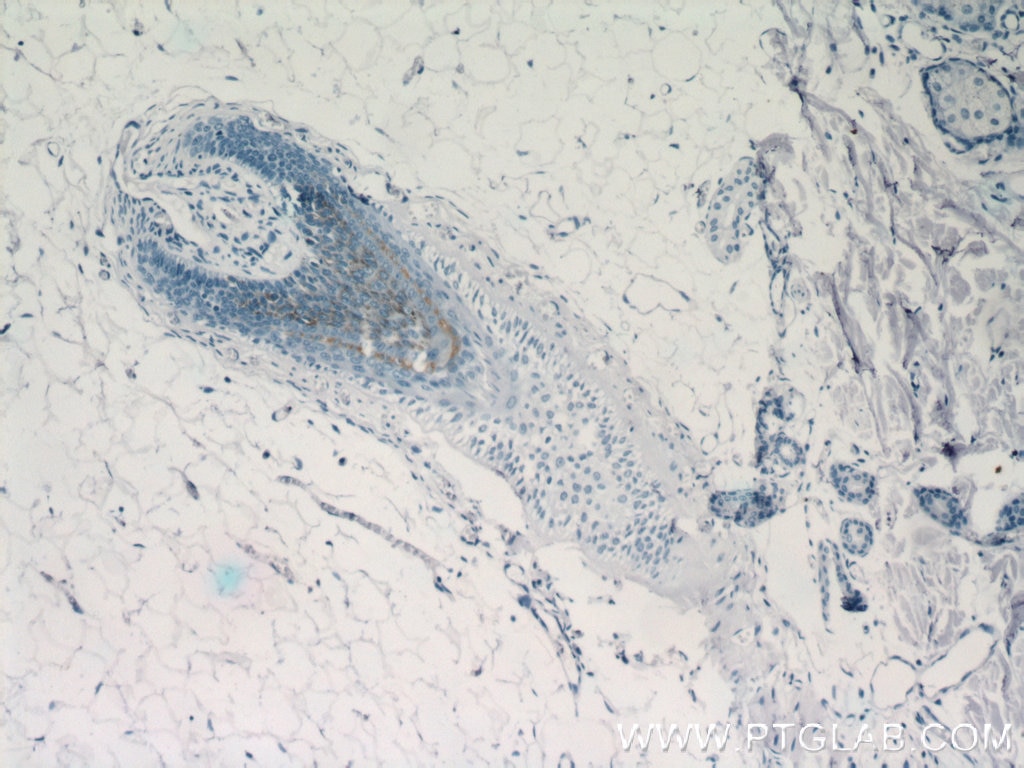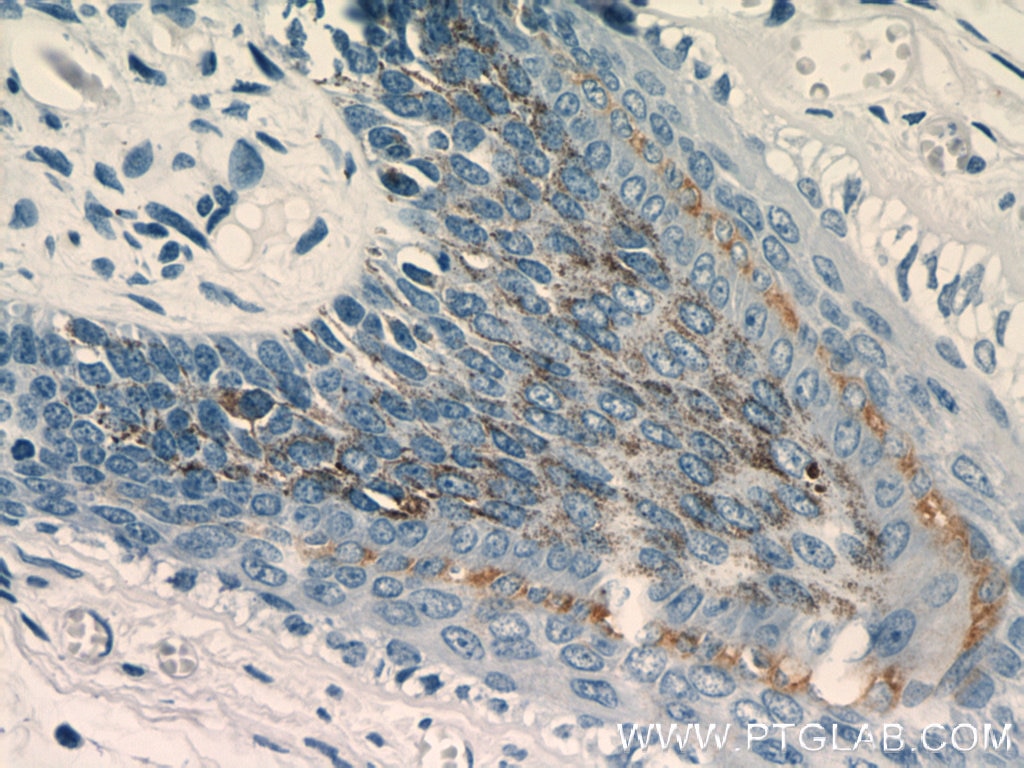- Phare
- Validé par KD/KO
Anticorps Polyclonal de lapin anti-CRNN
CRNN Polyclonal Antibody for WB, IHC, ELISA
Hôte / Isotype
Lapin / IgG
Réactivité testée
Humain, souris
Applications
WB, IHC, IF, ELISA
Conjugaison
Non conjugué
N° de cat : 11799-1-AP
Synonymes
Galerie de données de validation
Applications testées
| Résultats positifs en WB | tissu cérébral de souris, cellules HepG2 |
| Résultats positifs en IHC | tissu œsophagien humain, tissu cutané humain, tissu de cancer du col de l'utérus humain il est suggéré de démasquer l'antigène avec un tampon de TE buffer pH 9.0; (*) À défaut, 'le démasquage de l'antigène peut être 'effectué avec un tampon citrate pH 6,0. |
Dilution recommandée
| Application | Dilution |
|---|---|
| Western Blot (WB) | WB : 1:200-1:1000 |
| Immunohistochimie (IHC) | IHC : 1:20-1:200 |
| It is recommended that this reagent should be titrated in each testing system to obtain optimal results. | |
| Sample-dependent, check data in validation data gallery | |
Applications publiées
| KD/KO | See 2 publications below |
| WB | See 5 publications below |
| IHC | See 10 publications below |
| IF | See 2 publications below |
Informations sur le produit
11799-1-AP cible CRNN dans les applications de WB, IHC, IF, ELISA et montre une réactivité avec des échantillons Humain, souris
| Réactivité | Humain, souris |
| Réactivité citée | Humain, souris |
| Hôte / Isotype | Lapin / IgG |
| Clonalité | Polyclonal |
| Type | Anticorps |
| Immunogène | CRNN Protéine recombinante Ag2374 |
| Nom complet | cornulin |
| Masse moléculaire calculée | 495 aa, 54 kDa |
| Poids moléculaire observé | 70 kDa, 58 kDa |
| Numéro d’acquisition GenBank | BC030807 |
| Symbole du gène | CRNN |
| Identification du gène (NCBI) | 49860 |
| Conjugaison | Non conjugué |
| Forme | Liquide |
| Méthode de purification | Purification par affinité contre l'antigène |
| Tampon de stockage | PBS with 0.02% sodium azide and 50% glycerol |
| Conditions de stockage | Stocker à -20°C. Stable pendant un an après l'expédition. L'aliquotage n'est pas nécessaire pour le stockage à -20oC Les 20ul contiennent 0,1% de BSA. |
Informations générales
Cornulin, also known as C1orf10, is a member of the "fused gene" family of proteins, which contain N-terminus EF-hand domains and multiple tandem peptide repeats. It may play a role in the mucosal/epithelial immune response and epidermal differentiation. Specific to squamous epithelia cells, cornulin is expressed in esophagus, primary keratinocytes, scalp skin, foreskin, cervix, larynx, and fetal bladder. It may be a marker of late epidermal differentiation, and is down-regulated in eczema.
Protocole
| Product Specific Protocols | |
|---|---|
| WB protocol for CRNN antibody 11799-1-AP | Download protocol |
| IHC protocol for CRNN antibody 11799-1-AP | Download protocol |
| Standard Protocols | |
|---|---|
| Click here to view our Standard Protocols |
Publications
| Species | Application | Title |
|---|---|---|
J Invest Dermatol Cornulin Is Induced in Psoriasis Lesions and Promotes Keratinocyte Proliferation via Phosphoinositide 3-Kinase/Akt Pathways.
| ||
J Proteomics Plectin promotes migration and invasion of cancer cells and is a novel prognostic marker for head and neck squamous cell carcinoma. | ||
Clin Oral Investig Downregulation of CRNN gene and genomic instability at 1q21.3 in oral squamous cell carcinoma. | ||
J Thorac Cardiovasc Surg Loss of CRNN expression is associated with advanced tumor stage and poor survival in patients with esophageal squamous cell carcinoma. | ||
PLoS One Expression of Ki-67, Cornulin and ISG15 in non-involved mucosal surgical margins as predictive markers for relapse in oral squamous cell carcinoma (OSCC) | ||
